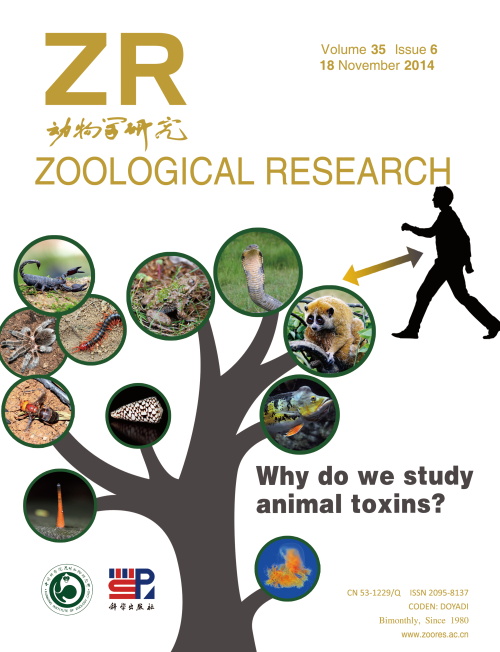In the wild, many animal species, no matter how small or strong they are, can use their specialized ways to defend themselves and to prey, e.g., the deadly predator, mantis, really masters the skill of hiding its merciless nature under the disguise of those super adorable, mysteries or even spiritual gestures of mimicry; the strong, mighty lions, on the other hand, never understand how to manifest their muscles and scare teeth in subtle ways. Whereas, for another large animal group, the venomous animals, their sophisticated animal toxins have endowed them with some fascinating and enchanting touches.
In the recently published invited review on Zoological Research, Dr ZHANG Yun (Kunming Institute of Zoology, Chinese Academy of Sciences) shared with us the stories about venomous animals and their toxins. “Venom is an very important trait evolved along the evolution tree of animals. Deciphering the correlations between animal toxins and immune systems are critical in understanding ourselves”, according to Dr ZHANG.
Lethal animal envenomation can be found worldwide. Now, annually, there are over 1,800,000 incidents of snake veneration and among them, 94,000 people would die; over 50,000 incidents of poisonous fish puncture and more than 1,000,000 cases of scorpion stings. However, even though animal venoms can severely endanger human lives, from a philosophy point of view, they may also help in curing human diseases, like an old Chinese saying--“using toxins to against toxins”. Therefore, other than answering fundamental biological questions, i.e., the environmental adaptation and survival competition, the evolution shaped development and balance of venoms, and the sophisticated correlations among immunity, body power, intelligence, genetic basis, inherent association, as well as the cost-benefit and trade-offs of biological economy, owr knowledges on venoms are also of critical meanings in directing novel drug developemt and their clinical uses.
In this review, Dr ZHANG extensive analyzed the current status of animal toxin studies and the industrial applications, summarized the correlations of animal toxins and human diseases, and predicted the future research directions and challenges. It was pointed out that animal venom is a golden mine far from fully developed, e.g., in China, only less than 0.1% of the toxins of the venomous animals have been explored so far. Moreover, based on the complicated, but sophisticated correlations of animal toxins and humans, which were linked by evolution, the natural pairing hypothesis was proposed, which indicates that: (1) each animal key physiological element has been targeted by toxins in evolution process, and there has been at least one toxin molecule acting on it; (2) for the interactions of physiological elements and toxins, there are endogenous similarities and conservation, which occur among physiological elements and endogenous toxin-like molecules and play roles in physiological processes.
“Our mission is to find out the right natural pairings and interactions of our body elements with toxins, and with endogenous toxin-like molecules. Through appreciating and studying animal toxins, we can find an effective way to benefit humans”, said Dr. ZHANG.
The full text of this review can be found in Zoological Research (http://www.zoores.ac.cn/article/2015/EOOLRES-36-4-183.html).
(By Su-Qing Liu)
Contact:ZHANG Yun
Email:zhangy@mail.kiz.ac.cn

